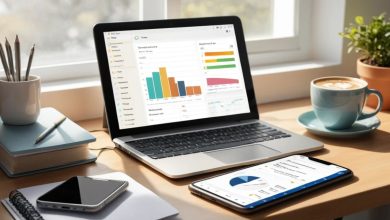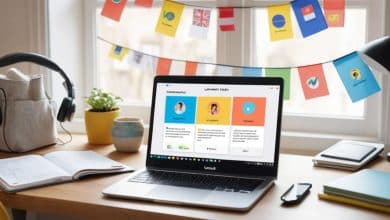Top Educational Resources for Coding and Programming Beginners
Learning to code can unlock new career paths, sharpen your problem-solving skills, and empower you to build real-world projects from scratch. However, with countless tutorials, platforms, and languages available, getting started may feel overwhelming. In this guide, you’ll discover the best coding resources for beginners—including interactive platforms, video series, books, bootcamp alternatives, and supportive communities—and learn how to create a clear pathway from zero knowledge to confidence in programming fundamentals.
“The best educational resources for coding and programming beginners include interactive coding platforms like Codecademy and freeCodeCamp, video tutorial series on YouTube channels such as Traversy Media, beginner-friendly programming books like ‘Automate the Boring Stuff with Python,’ bootcamp alternatives like The Odin Project, and supportive online communities like Stack Overflow.”
Why Coding Skills Matter for Beginners
Coding is no longer a niche skill reserved for computer scientists. Today, basic programming knowledge is invaluable across fields—from marketing to healthcare. Key reasons to learn coding include:
-
Growing Demand: Tech roles such as web developer, data analyst, and software engineer are projected to grow faster than average, offering competitive salaries and remote work options.
-
Computational Thinking: Programming cultivates logical problem-solving, algorithmic reasoning, and the ability to break complex tasks into manageable steps—skills that transfer to any discipline.
-
Accessibility: Many high-quality resources are free or low-cost, letting anyone with internet access begin their coding journey.
-
Portfolio Building: By creating small projects—web pages, simple games, or data visualizations—beginners can showcase their skills to potential employers.
-
Lifelong Learning: Technology evolves rapidly; starting with foundational skills ensures you can adapt to new languages and frameworks as they emerge.
How We Selected the Top Resources
Understanding which resources will actually guide a beginner from “Hello, World!” to confidence requires clear selection criteria. We evaluated each resource based on:
-
Ease of Onboarding: Beginner-friendly interfaces, clear instructions, and minimal setup.
-
Structured Curriculum: Logical progression from fundamentals to practical applications, with built-in checkpoints.
-
Hands-On Practice: Interactive coding environments or project-based assignments that reinforce concepts.
-
Cost & Accessibility: Free tiers or affordable pricing, with minimal dependence on complex local installations.
-
Community & Support: Active forums, peer feedback, or mentor guidance to help troubleshoot and stay motivated.
Categories of Coding Resources
Below are the primary categories of resources every beginner should consider, along with top examples and their benefits.
Interactive Coding Platforms
-
Codecademy
-
Benefits: Browser-based code editor with instant feedback for languages such as HTML, CSS, JavaScript, and Python. Structured learning paths guide you through small, digestible lessons.
-
-
freeCodeCamp
-
Benefits: A comprehensive, free curriculum covering web development (HTML, CSS, JavaScript) and data visualization. Earn real-world certifications by completing projects like responsive webpages and API integrations. Supported by an active discussion forum for troubleshooting.
-
Video Tutorial Series
-
Traversy Media (YouTube)
-
Benefits: Engaging crash courses on full-stack topics, including HTML, CSS, JavaScript frameworks (React, Node.js), and backend development. Each video combines clear explanations with live coding demonstrations.
-
-
Programming with Mosh
-
Benefits: Beginner-friendly series on Python, Java, C#, and JavaScript. Mosh’s approachable teaching style breaks down complex concepts into clear, practical examples.
-
Beginner-Friendly Books
-
Automate the Boring Stuff with Python
-
Benefits: Practical, project-based approach that teaches Python fundamentals through real-world tasks—automating spreadsheets, web scraping, and simple GUI apps. Exercises reinforce skills immediately.
-
-
Eloquent JavaScript
-
Benefits: In-depth dive into JavaScript basics with interactive code examples and exercises. Covers topics like functions, data structures, and DOM manipulation, with a focus on writing clean, idiomatic code.
-
Bootcamp Alternatives
-
The Odin Project
-
Benefits: Open-source full-stack web development curriculum combining HTML, CSS, JavaScript, Node.js, and database basics. Emphasizes Git workflow and building a portfolio of projects hosted on GitHub.
-
-
OpenClassrooms
-
Benefits: Guided learning paths in web development, UX design, and data analysis. Includes real-world projects, weekly mentor calls, and career services (for paid tracks), offering a bootcamp-like experience at a lower cost.
-
Community & Forums
-
Stack Overflow
-
Benefits: Massive Q&A platform where beginners and experts troubleshoot code errors, share best practices, and find solutions to programming challenges. Reputation-based system surfaces reliable answers quickly.
-
-
Reddit r/learnprogramming
-
Benefits: Supportive community of aspiring developers sharing resources, answering questions, and offering mentorship. Weekly threads invite code reviews and project feedback, fostering peer accountability.
-
Mobile Coding Apps
-
Grasshopper
-
Benefits: Google’s JavaScript tutorial app uses interactive puzzles to teach syntax on your phone. Ideal for absolute beginners wanting to practice coding during short breaks.
-
-
SoloLearn
-
Benefits: Bite-sized lessons across languages—Python, JavaScript, Java, C++, and more—with community challenges and code playgrounds. Earn points and badges to stay motivated.
-
Top 10 Resources for Coding Beginners
| Resource | Description | Free Tier | Ideal For |
|---|---|---|---|
| Codecademy | Interactive, step-by-step lessons in multiple languages (HTML, CSS, JS, Python). | ✔ | Hands-on learners |
| freeCodeCamp | Comprehensive web dev curriculum with real projects and active forum support. | ✔ | Project-focused beginners |
| Traversy Media (YouTube) | Engaging video tutorials on full-stack topics, frameworks, and best practices. | ✔ | Visual learners |
| Automate the Boring Stuff | Practical Python book with real-world scripts to automate tasks and build beginner confidence. | ✔ (online) | Absolute Python novices |
| Eloquent JavaScript | In-depth JavaScript guide with interactive examples and exercises. | ✔ (online) | Console-savvy readers |
| The Odin Project | Open-source full-stack curriculum with Git workflow and portfolio projects. | ✔ | Motivated self-starters |
| Stack Overflow | Q&A community for troubleshooting code errors and developer best practices. | ✔ | Problem-solvers |
| Grasshopper | Beginner-friendly JS puzzles on mobile, guided by Google’s design. | ✔ | Learners on the go |
| SoloLearn | Bite-sized coding lessons across languages, community challenges, and code playground. | ✔ | Mobile-focused learners |
| GitHub Learning Lab | Interactive Git and GitHub tutorials with real repository practice and project-based learning. | ✔ | Version control beginners |
Free vs. Paid Tiers
| Platform | Free Tier Features | Paid Tier Advantages | Cost |
|---|---|---|---|
| Codecademy | Basic courses in HTML/CSS, JS, Python; limited quizzes. | Pro quizzes, real-world projects, portfolio review, career paths. | $19.99/month |
| freeCodeCamp | Full curriculum, certification projects, active forums. | N/A (100% free) | Free |
| Traversy Media | All YouTube tutorials, community comments, sample code. | N/A | Free |
| Automate Python | Full online edition free; in-chapter exercises. | Printed book, video course bundles. | $25–$30 for print |
| Eloquent JS | Free HTML version with interactive code examples. | Paperback edition, supplemental videos. | $20–$25 for paperback |
| The Odin Project | Full curriculum, community projects, Git tutorials. | N/A | Free |
| Grasshopper | Complete JS puzzles, progress tracking. | N/A | Free |
| SoloLearn | Core lessons, community discussion, code playground. | Ad-free experience, extra quizzes, personal mentorship. | $5–$10/month |
| GitHub Lab | Comprehensive Git/GitHub tutorials, badge earning. | N/A | Free |
| Stack Overflow | Full access to Q&A knowledge base. | N/A | Free |
Step-by-Step Tutorial: How to Start Learning to Code
-
Set Clear Goals
-
Example: “Build a personal portfolio website using HTML, CSS, and JavaScript in three months.”
-
Outline milestones: “Complete HTML basics in two weeks,” “Finish CSS styling in four weeks,” and “Deploy portfolio to GitHub Pages.”
-
-
Choose a Primary Language
-
Web Development Path: Begin with HTML & CSS, then progress to JavaScript.
-
General Programming Path: Start with Python for its clear syntax and broad applications—from data analysis to web backends.
-
-
Select an Interactive Platform
-
Codecademy: Enroll in “HTML & CSS” or “Python” course. Complete daily lessons in their browser-based editor.
-
freeCodeCamp: Start the “Responsive Web Design” certification, tackling interactive challenges in your browser.
-
-
Supplement with Video Tutorials
-
Traversy Media: Watch the “Modern JavaScript From Scratch” crash course. Pause after each concept to code along.
-
Programming with Mosh: Follow the “Python Programming for Beginners” series, pausing to replicate examples in your local environment.
-
-
Read a Beginner-Friendly Book
-
Automate the Boring Stuff with Python: Complete Chapters 1–3 to learn basic syntax and file manipulation. Try automating a simple task—renaming files or scraping a webpage.
-
Eloquent JavaScript: Work through Chapters 1–3, writing small code snippets in the interactive environment on the site.
-
-
Join a Community
-
Stack Overflow: Post questions when you encounter errors, searching for previously answered solutions.
-
Reddit r/learnprogramming: Engage in weekly “Project Feedback” or “Resource Sharing” threads for support and accountability.
-
-
Build Small Projects
-
To-Do List App: Use HTML, CSS, and JavaScript to create a simple to-do list that persists tasks in local storage.
-
Number Guessing Game: Write a Python script that randomly selects a number and prompts the user to guess, providing hints (“too high”/“too low”).
-
-
Track Progress & Iterate
-
Keep a spreadsheet logging daily study time, modules completed, and project milestones. Aim for 5–7 hours per week.
-
Revisit weak areas: If JavaScript loops confuse you, create flashcards with loop syntax and practice small exercises on SoloLearn or Grasshopper.
-
Metrics to Monitor for Beginner Success
-
Module Completion Rate
-
Track the percentage of lessons finished on interactive platforms—aim for 80–100% per topic.
-
-
Project Milestones Achieved
-
Number of small projects built (e.g., “Personal Portfolio,” “Calculator App”)—target 2–3 projects in the first three months.
-
-
Quiz Accuracy & Speed
-
Average correctness on flashcard quizzes from Quizlet or Quizizz—target 90%+ accuracy and decreasing time per question weekly.
-
-
Community Engagement
-
Number of questions asked and answered on Stack Overflow or Reddit—aim for 5 meaningful exchanges per week to foster accountability.
-
-
GitHub Contributions
-
Frequency of commits and pull requests—aim for at least 2 commits per project to document iteration and progress.
-
FAQs
Which coding language should absolute beginners start with?
Python is often recommended for total novices due to its clean syntax, readability, and versatility—ranging from web development (using frameworks like Flask) to data analysis (using libraries like Pandas). For those interested in front-end development, starting with HTML and CSS provides quick, visual results before moving on to JavaScript.
Are free resources sufficient to become job-ready, or should I pay for a bootcamp?
Many successful developers began with free platforms like freeCodeCamp and Codecademy, building strong foundations through self-paced study and community support. However, bootcamps often offer structured mentorship, career services, and accelerated timelines. If you require more personalized guidance and immediate job placement assistance, a paid bootcamp might be worthwhile. Otherwise, free resources—paired with personal projects and networking—can lead to employment.
How long does it take to build a simple project as a beginner?
With consistent effort—5–7 hours per week—most beginners can complete a small project (such as a “To-Do List” web app or a “Number Guessing” Python script) within 4–6 weeks. Timelines vary based on prior experience, project complexity, and available support.
How do I stay motivated when learning to code?
-
Set Achievable Milestones: Break your goals into weekly targets—complete one module or build one feature each week.
-
Join Coding Communities: Participate in forums like Reddit r/learnprogramming or local coding meetups for peer accountability.
-
Build Passion Projects: Develop small applications that solve a personal problem or align with your interests—gamified flashcards, a personal blog, or a budget tracker.
-
Celebrate Small Wins: Recognize when you solve a bug, complete a module, or push your first commit to GitHub.
Conclusion
Starting your coding journey can be both exciting and daunting. By leveraging interactive platforms (Codecademy, freeCodeCamp), video tutorials (Traversy Media, Mosh), beginner-friendly books (Automate the Boring Stuff, Eloquent JavaScript), bootcamp alternatives (The Odin Project), and supportive communities (Stack Overflow, Reddit), you’ll build a solid foundation in programming. Follow the step-by-step plan: set clear goals, choose a language, complete interactive lessons, supplement with videos and reading, engage in communities, and build hands-on projects. Monitor your progress using key metrics—module completion, project milestones, quiz accuracy, community engagement, and GitHub contributions—to ensure consistent growth. With dedication, these top educational resources for coding beginners will help you master the fundamentals, create an impressive portfolio, and open doors to a rewarding technology career. Happy coding!
Published on: 4 de June de 2025








